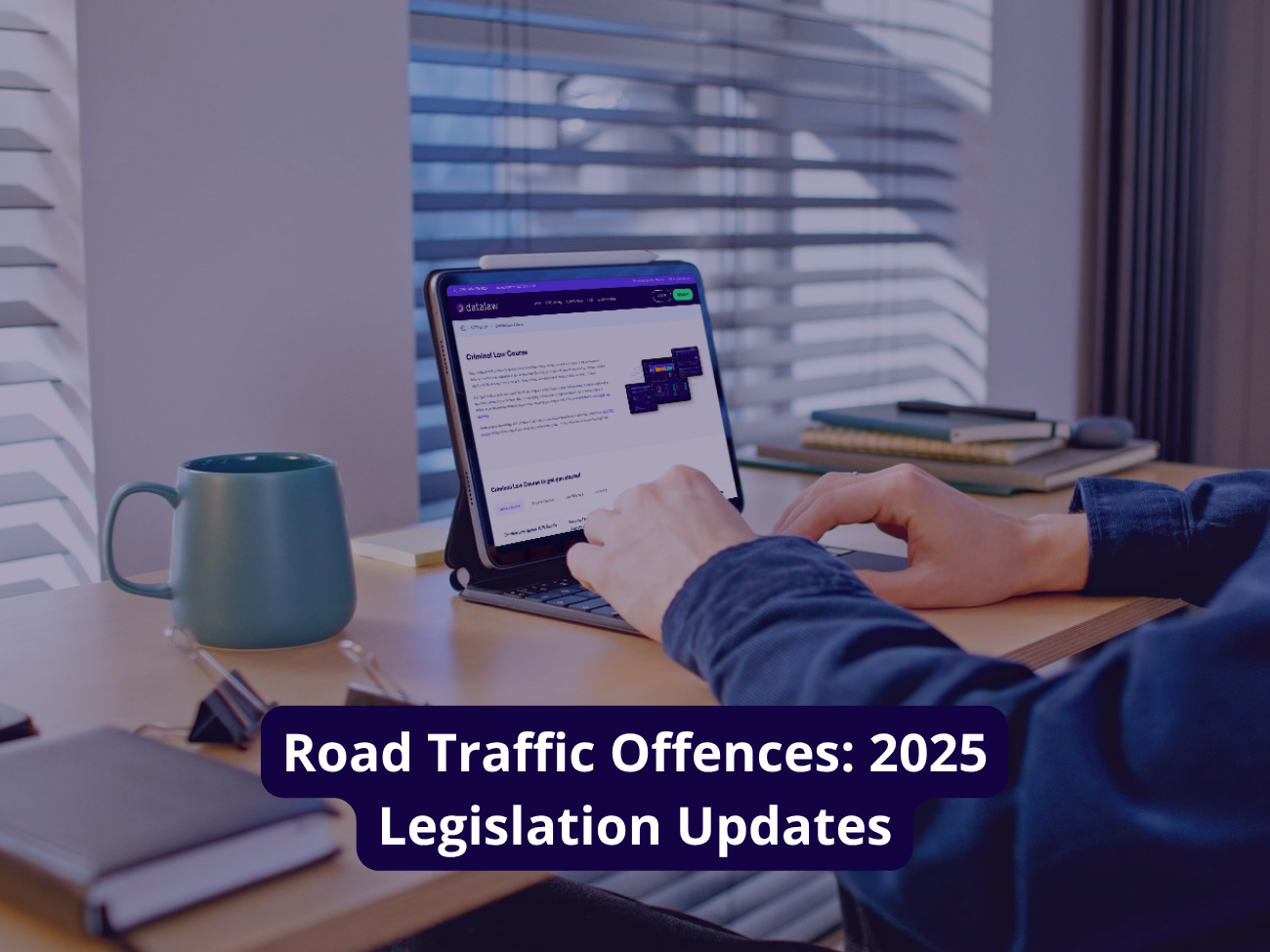The landscape of road traffic offences continues to evolve, with new legislative updates affecting both legal practitioners and motorists alike. Staying informed about these changes is crucial for duty solicitors and legal professionals who provide guidance and representation in road traffic cases. The latest road traffic law amendments introduce important procedural and sentencing updates that impact the way offences are prosecuted and defended.
Download our Free “Criminal Law Update Bundle 2025” Brochure
Key 2025 Legislative Changes in Road Traffic Law
Recent updates to road traffic law address some of the most common offences, including drink and drug driving, mobile phone use while driving, and speeding. These amendments aim to enhance road safety while ensuring that penalties remain proportionate to the severity of the offence.
Stricter Regulations on Mobile Phone Use
The penalties for using a mobile phone while driving have been further tightened. Under the updated laws, even brief interactions with a phone, including checking notifications or changing music, can result in harsher fines and penalty points. These changes reflect the government’s commitment to reducing road accidents linked to driver distractions.
Drink and Drug Driving Enforcement
The 2025 updates introduce new evidentiary thresholds and expanded police powers in drink and drug driving cases. Law enforcement officers now have wider authority to conduct roadside tests, and courts are imposing stricter sentencing guidelines for repeat offenders. These updates mean that legal practitioners must be well-versed in advising clients on both defence strategies and mitigation options.
Speeding Offences and Increased Penalties
With the introduction of new speed detection technologies, authorities have become more efficient in catching speeding drivers. Penalties for excessive speeding have been revised, with higher fines and extended disqualification periods for serious violations. Legal professionals advising on road traffic offences must stay informed on these adjustments to effectively represent clients in court.
Totting-Up Rules and Disqualifications
The ‘totting-up’ system, which leads to disqualification after accumulating 12 penalty points, has undergone amendments to account for exceptional hardship applications. Courts now have clearer guidelines on when to grant exemptions, ensuring consistency in sentencing. This is particularly relevant for duty solicitors representing clients at risk of losing their licenses.
Criminal Procedure Rules and Road Traffic Cases
In addition to legislative changes, the criminal procedure rules governing road traffic cases have been updated. These modifications streamline how cases progress through the Magistrates’ Court, including:
- New deadlines for submitting evidence and witness statements
- Updated procedural requirements for challenging fixed penalty notices
- Revised criteria for appealing disqualification decisions
Duty solicitors must familiarise themselves with these updates to ensure compliance and provide accurate legal advice to clients.
Defences and Mitigation Strategies
For those facing prosecution for road traffic violations, understanding possible defences is crucial. Some common defences include:
- Technical challenges to evidence collection (e.g., incorrect calibration of speed cameras)
- Necessity or emergency defences (e.g., driving due to a medical emergency)
- Errors in police procedures (e.g., failure to follow legal requirements during roadside testing)
Additionally, mitigation arguments can help reduce penalties. Factors such as a previously clean driving record, remorse, and genuine necessity for driving can all play a role in securing reduced sentences.
Enhancing Legal Expertise with Criminal Law Training
To stay current with these road traffic law changes and provide the best representation possible, legal practitioners should engage in specialised criminal law training. Datalaw’s Advising on Road Traffic Offences: 2025 Update is designed to equip duty solicitors and legal professionals with the latest knowledge and advocacy strategies. This comprehensive criminal law course online covers legislative updates, procedural changes, and effective defence techniques
Discover more of our Legal Updates.



